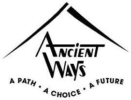We are focusing on greens and moringa tree leaves as the best way to assist the immune system (besides clean water).
* The elderly (being defined as over 70), pregnant, and lactating women are considered the most vulnerable populations regarding lack of nutrition, particularly because of an ongoing drought. To our knowledge the only supplementation that the government has been providing is 50 kg maize to the elderly per month. Early April, selected families received oil, maize staple, and peas from the World Food Program.
* We are in the process of identifying who these residents are so we can provide greens, our most available and valuable asset of vitamins and minerals.
* Our new Community Center garden system is almost complete. The windmill is almost ready to install (within days), then easily finishing up with the piping.
* To keep the garden production practical, drip-lines to finish the last 8 (out of 10) rows of irrigation must be purchased, as well as a very long hose to reach the buckets from the new faucet.
* Before June 2020 our new garden will be producing enough greens to provide this particular segment of people a daily bunch of greens at no cost. If purchased from local sellers, this would cost $7 USD a month per person.
* We drilled a borehole in March to secure clean water. A drip-line irrigation system was begun in November as another step towards sustainability and looking to the future for succession planning, making the Nhimbe for Progress project far more capable of operating without so much dependency on donor intercession.
* Normally the preschoolers were considered our most vulnerable populations. Because we don’t know if or when schools will reopen, and how serious Covid-19 will be during their winter, we are not proposing preschool feeding at this time. If we do at some point, the children would come in small groups throughout the day, and the parents would stay out some distance, letting the children finish their walk to school (the normal routine).

